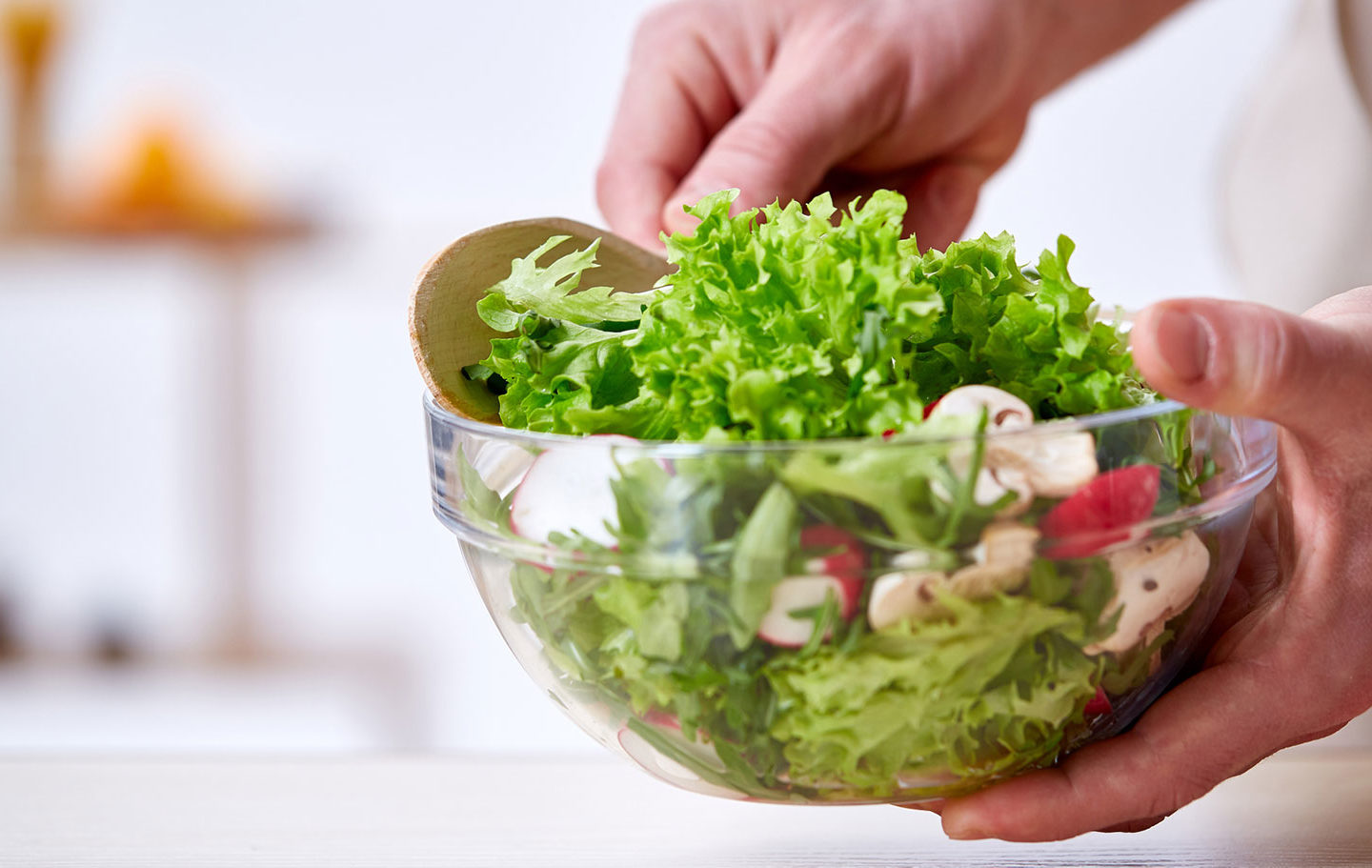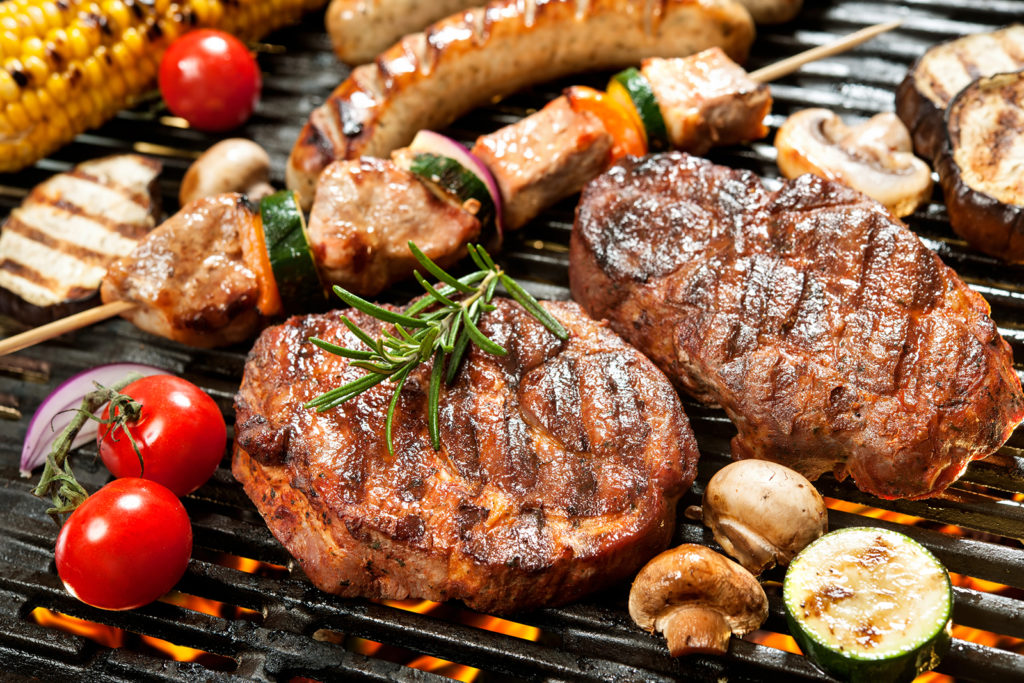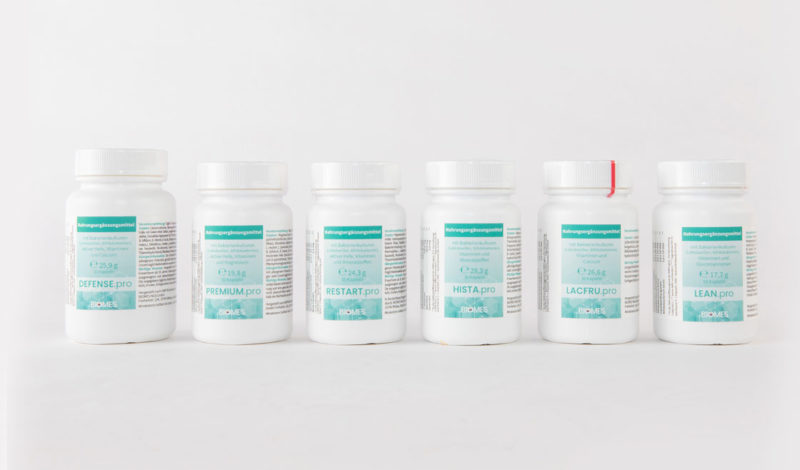Thousands of species of bacteria live in the intestines. Together they form the microbiome, your individual intestinal flora. Sometimes it [...]

Inflammation of the bowels: What diet is recommended?
What diet is recommended? The correct nutrition plan plays a decisive role in intestinal inflammation since it can relieve symptoms and promote recovery. In general, you should only eat foods that are good for your stomach and intestines. In the best-case scenario, the right diet can alleviate or even prevent symptoms such as diarrhoea, stomach cramps, or nausea. Even if it is not yet clear if you have chronic bowel disease, an enteritis diet makes sense.
What to eat in case of intestinal inflammation?
What the ideal nutrition plan for intestinal inflammation looks like depends largely on the type, duration, and intensity of your symptoms. In the case of mild symptoms, it is initially helpful to eat several small meals instead of large, rich meals. This is because an irritated stomach or intestinal tract copes better with the small portions. It also helps to make sure you chew your food well to further help processing in the gastrointestinal tract when the food is being further broken down. After all, thorough chewing facilitates the work of the gastrointestinal tract. In the case of intestinal inflammation, a diet that is gentle to the stomach is recommended. If you eat light foods, make sure that you always get a sufficient amount of essential nutrients, even if you only eat small amounts. Light food is usually high in fibre, low in fat and acid, and easy to digest. An affected gastrointestinal tract needs a light diet so that it can recover and is not irritated any further.
With intestinal inflammation , there is no optimal diet plan. For a sensitive stomach or intestine, spicy, sour, and too hot or too cold foods are not recommended as they irritate the mucous membrane. For mild to moderate symptoms, a normal but light whole food diet is recommended. Severe inflammation of the intestines may require a liquid diet. Moreover, after an operation, an artificial tube feeding is often necessary.
The most important factor for a diet that addresses your intestinal inflammation is to simply try it out. You should test what is good for you and what you should better do without. It is important that you keep a nutrition diary so that you can understand exactly what foods you can tolerate well and which ones you cannot. Along with a smart nutrition plan, sports activities often lead to better overall well-being. If you have a certain food intolerance, for example against fructose or gluten, it is better not to experiment with these types of foods in order to protect your stomach and intestine.
Nutrition and the Enteritis diet in case of intestinal inflammation: Which foods are well tolerated?
In case of intestinal inflammation, a diet that consists of unsweetened tea (e.g. black tea or chamomile), oatmeal, low-fat broth, rice, rice waffles, white bread, rusk, or mashed potatoes is recommended. Fruit and vegetables such as zucchini, fennel, banana, apple, or pear are low in acid and are therefore considered to be tolerated well if there are gastrointestinal problems. This also applies to spices and herbs such as caraway, aniseed, coriander, or lemon balm. Depending on individual tolerance, low-fat dairy products can be easily digestible.

You should avoid the following foods:
- legumes
- raw vegetables
- fruit juice
- citrus fruits
- sauerkraut
- onions
- nuts
- avocados
- fatty meat
- oily fish
- hot spices
- coffee
- alcohol
- carbonated drinks
What foods trigger intestinal inflammation also depends on the preparation method of the food. Boiled or steamed vegetables are particularly gentle to the intestinal tract and are generally tolerated well. However, if you are following an enteritis diet, you should avoid the following:
- oily
- roasted
- fried
- smoked
- Sources:
- Ernährung bei Colitis ulcerosa | NDR.de – Ratgeber – Gesundheit
- Erridge C, et. al. (2007) A high-fat meal induces low-grade endotoxemia: evidence of a novel mechanism of postprandial inflammation. Am J Clin Nutr. ;86(5):1286-92. doi: 10.1093/ajcn/86.5.1286
- Nutrition Tips for Inflammatory Bowel Disease | UCSF Health
- Inflammatory Bowel Disease Diet | Foods to Avoid with Inflammatory Bowel Disease & IBD Diet Plans – Cleveland, Ohio | University Hospitals (uhhospitals.org)
- Prince A., et. Al. (2016) Fermentable Carbohydrate Restriction (Low FODMAP Diet) in Clinical Practice Improves Functional Gastrointestinal Symptoms in Patients with Inflammatory Bowel Disease, Inflammatory Bowel Diseases, Volume 22, Issue 5, Pages 1129–1136, doi: 10.1097/MIB.0000000000000708



